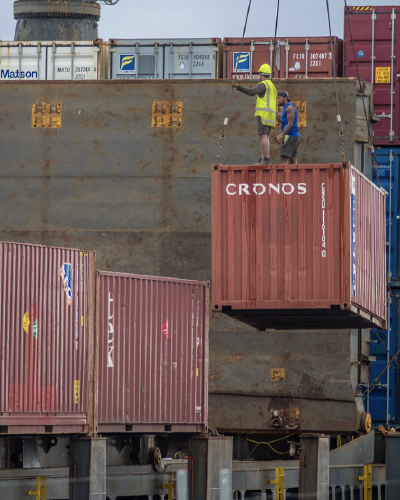With support from ADB and New Zealand, the Cook Islands took decisive steps during the pandemic to restore its battered economy, fill critical financing gaps, and advance innovative policy reforms designed to promote long-term, sustainable growth.
the pandemic’s economic toll
The Cook Islands, a small island nation in the South Pacific, has long relied on tourism as a primary economic driver. However, when COVID-19 struck, the country’s borders closed, and its economy faced a sharp contraction. Recognizing the urgent need to stabilize and rebuild, the government embarked on a bold journey of economic recovery, supported by international partners such as ADB and the Government of New Zealand. The Supporting Sustainable Economic Recovery Program helped the Cook Islands navigate these challenges with critical financial support to stabilize the economy and by introducing policy reforms that enhance fiscal management, promote private sector growth, and build resilience against future shocks.
The COVID-19 pandemic brought unprecedented economic challenges to the Cook Islands. Tourism, which accounted for over 60% of the country’s pre-pandemic gross domestic product (GDP), came to a halt. Visitor arrivals plummeted, leading to a 26% contraction in GDP in 2021.
With government revenues heavily dependent on tourism-related taxes, the fiscal impact was severe. The government faced a significant liquidity crisis, with cash reserves dwindling rapidly. Unlike many other countries, the Cook Islands lacked access to international credit markets, and did not have a central bank to provide emergency liquidity.
To overcome these constraints, the government sought external support. The Supporting Sustainable Economic Recovery Program, backed by ADB’s $80 million policy-based loan and a precautionary financing option, provided much-needed budget support to stabilize the fiscal situation and ensure continuity of essential public services.
“The Cook Islands smartly used ADB and New Zealand support, stabilized their pandemic-battered economy, and implemented needed financial reforms.”

reforming fiscal management for resilience
At the heart of the broader recovery program is a series of policy reforms designed to restore fiscal sustainability and strengthen governance. One significant achievement was the approval of a new Medium-Term Fiscal Strategy (MTFS) for FY2022–FY2025. The MTFS sets cash reserve targets for the Cook Islands, limits public debt growth to below 65% of gross domestic product, and safeguards social protection measures for vulnerable populations.
Another key reform is the Cash Management Strategy, which introduced measures to improve liquidity management. The Cash Management Committee, comprised of key government agencies and development partners, was established to oversee cash flow planning and ensure that the government could meet its financial obligations even during crises.
Tax compliance also became a priority. The government launched a compliance improvement strategy to address tax arrears and enhance revenue collection. These reforms are crucial for reducing fiscal vulnerabilities and ensuring the sustainability of essential public services.
“The Cook Islands' proactive approach to fiscal reforms is key to building a resilient economy capable of withstanding future shocks.”

promoting private sector growth and regional integration
The recovery program also emphasizes creating an enabling environment for private sector growth. The government implemented measures to simplify business registration processes and improve access to financing. An integrated online registry was launched, allowing businesses to register and manage their information digitally, reducing administrative burdens.
Labor market reforms were introduced to address workforce challenges exacerbated by the pandemic. The government adjusted immigration policies to allow greater flexibility for migrant workers, ensuring that businesses could fill labor shortages without unnecessary bureaucratic delays.
Regional cooperation was another critical aspect of the recovery plan. The Cook Islands established quarantine-free travel arrangements with New Zealand to boost tourism. Although the initial quarantine-free travel was suspended due to COVID-19 cases in New Zealand, the reopening of borders helped in the country’s recovery strategy.
The program allowed the Cook Islands to navigate uncertainty and achieve a more sustainable recovery.
“The Cook Islands' reforms to cut red tape, improve hiring flexibilities, and boost regional integration will help drive growth.”


